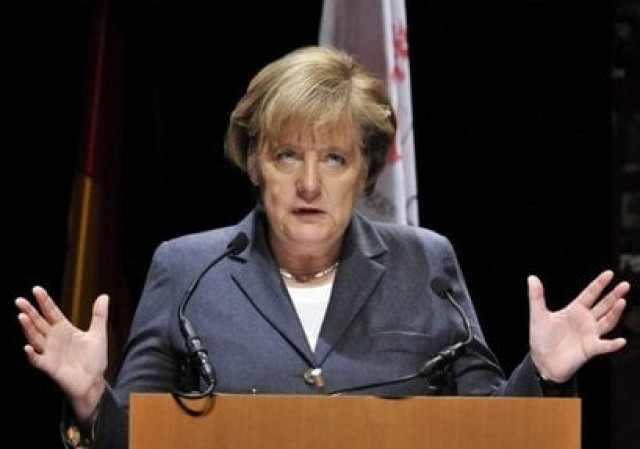German coalition crisis talks fail to resolve migrant dispute
Crisis talks on Tuesday night failed to defuse a dispute that threatens to tear apart her three-month old government

German Chancellor Angela Merkel's coalition parties fail to resolve migrant dispute. PHOTO: AFP
her three-month old government.
The row is over plans drawn up by Merkel's interior minister Horst Seehofer, the head of Bavaria's conservative Christian Social Union (CSU), to send back migrants who have registered in other EU states at the German border. This is anathema to the usually flexible Merkel as it would undermine her open-door migrant policy and be a major setback to the EU's Schengen free border system.
In Merkel migrant row, Germans back tough policies: poll
At a time when European countries are also deeply divided on how to deal with the influx of migrants, the CSU has given Merkel until the end of this week's EU summit to agree on policies with EU partners to reduce the burden on Germany.
Volker Kauder, a senior lawmaker in Merkel's Christian Democrats (CDU), told German television the argument had not been resolved at Tuesday's talks, which went past midnight, at the chancellery, and stressed that the situation was grave.
"It is very serious--we saw that in the talks, this is not about something small, it is about something central and important. We need to talk to each other," said Kauder.
There was no let up from the CSU which is piling pressure on Merkel to get a European deal, or at least bilateral deals with countries like Greece and Italy, saying nothing was to be gained by delaying action.
"From the next week we want migrants to be rejected at the border if they have already registered in another European country and should therefore go through the asylum procedure there," Alexander Dobrindt, a senior CSU lawmaker, said.
"I do not understand talking about possible future solutions for Europe while not being prepared to do what Germany can do now," said Dobrindt, who within the CSU tends to take a particularly tough line, he told German television.
The CSU meet on Sunday to decide whether to defy Merkel and introduce the new controls. If Seehofer goes ahead with his plans, many members of Merkel's CDU say she would be forced to fire him. That could lead to a breakup of the 70-year old alliance between the CDU and CSU and rob Merkel of a parliamentary majority. The main options then look like a Merkel-led minority government or a new election. It is also possible that Merkel, chancellor for nearly 13 years, may lose support in her own CDU.
Islam does not belong to Germany, declares German interior minister
However, some commentators say the CSU has softened its tone in the last day or two, with some members saying the aim is not to bring down Merkel's government--even if they are not shifting on the main substance of their plans. Andrea Nahles, head of the Social Democrats (SPD) who also share power with Merkel's conservative bloc, said it was unsatisfactory that there was standstill in the coalition and no
one knew how things would end up.
Asked if she was preparing for a new election, she said: "I don't know. To be honest with you, we are waiting to see."
Merkel's open-door migrant policy, which has led to the arrival of more than 1.6 million migrants in Germany since the start of 2015, is blamed for the rise of the far-right Alternative for Germany (AfD), now the main opposition party.



















COMMENTS
Comments are moderated and generally will be posted if they are on-topic and not abusive.
For more information, please see our Comments FAQ